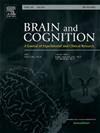COVID-19期间大流行前食物抑制控制和暴饮暴食:一项纵向功能磁共振成像研究
IF 1.4
3区 心理学
Q3 NEUROSCIENCES
引用次数: 0
摘要
2019冠状病毒病大流行严重影响了身心健康,暴饮暴食成为一个普遍问题,其特点是过度进食,尽管感觉饱了,但仍倾向于继续进食。这项研究调查了流行病前与食物相关的抑制控制与流行病期间暴饮暴食之间的关系。在流感大流行之前,对745名大学生进行了静息状态功能磁共振成像(fMRI)和行为食物去/不去任务。在大流行之前收集了抑制控制数据,并在其高峰期测量了暴饮暴食。相关分析显示,食物抑制控制与认知控制相关的脑区(包括腹侧前额叶皮层(VLPFC)和前扣带皮层(ACC))呈正相关,与奖励相关的脑区(如中央后回、楔前叶、舌皮质)呈负相关。此外,楔前叶和舌皮质之间的功能连接与抑制控制负相关。纵向中介模型表明,抑制控制对暴饮暴食的影响是由VLPFC和ACC介导的。这项研究首次探索了大流行期间食物抑制控制与暴饮暴食之间的关系,为抑制控制在饮食行为中的作用及其对促进健康饮食的潜在影响提供了见解。本文章由计算机程序翻译,如有差异,请以英文原文为准。
Pre-pandemic food inhibitory control and overeating during COVID-19: A longitudinal fMRI study
The COVID-19 pandemic has significantly impacted physical and mental health, with overeating becoming a prevalent issue, characterized by excessive food consumption and a tendency to continue eating despite feeling full. This study examined the relationship between pre-pandemic food-related inhibitory control and overeating during the pandemic. Resting-state functional magnetic resonance imaging (fMRI) and a behavioral food go/no-go task were conducted prior to the pandemic in 745 college students. Inhibitory control data were collected before the pandemic, and overeating was measured during its peak. Correlation analysis revealed a positive link between food inhibitory control and brain regions related to cognitive control, including the ventrolateral prefrontal cortex (VLPFC) and Anterior Cingulate Cortex (ACC), and a negative link to reward-related regions (e.g., postcentral gyrus, precuneus, lingual cortex). Additionally, functional connectivity between the precuneus and lingual cortex negatively correlated with inhibitory control. Longitudinal mediation models showed that the effect of inhibitory control on overeating was mediated by the VLPFC and ACC. This study is the first to explore the relationship between food inhibitory control and overeating during the pandemic, offering insights into the role of inhibitory control in eating behaviors and its potential implications for promoting healthier eating.
求助全文
通过发布文献求助,成功后即可免费获取论文全文。
去求助
来源期刊

Brain and Cognition
医学-神经科学
CiteScore
4.60
自引率
0.00%
发文量
46
审稿时长
6 months
期刊介绍:
Brain and Cognition is a forum for the integration of the neurosciences and cognitive sciences. B&C publishes peer-reviewed research articles, theoretical papers, case histories that address important theoretical issues, and historical articles into the interaction between cognitive function and brain processes. The focus is on rigorous studies of an empirical or theoretical nature and which make an original contribution to our knowledge about the involvement of the nervous system in cognition. Coverage includes, but is not limited to memory, learning, emotion, perception, movement, music or praxis in relationship to brain structure or function. Published articles will typically address issues relating some aspect of cognitive function to its neurological substrates with clear theoretical import, formulating new hypotheses or refuting previously established hypotheses. Clinical papers are welcome if they raise issues of theoretical importance or concern and shed light on the interaction between brain function and cognitive function. We welcome review articles that clearly contribute a new perspective or integration, beyond summarizing the literature in the field; authors of review articles should make explicit where the contribution lies. We also welcome proposals for special issues on aspects of the relation between cognition and the structure and function of the nervous system. Such proposals can be made directly to the Editor-in-Chief from individuals interested in being guest editors for such collections.
 求助内容:
求助内容: 应助结果提醒方式:
应助结果提醒方式:


